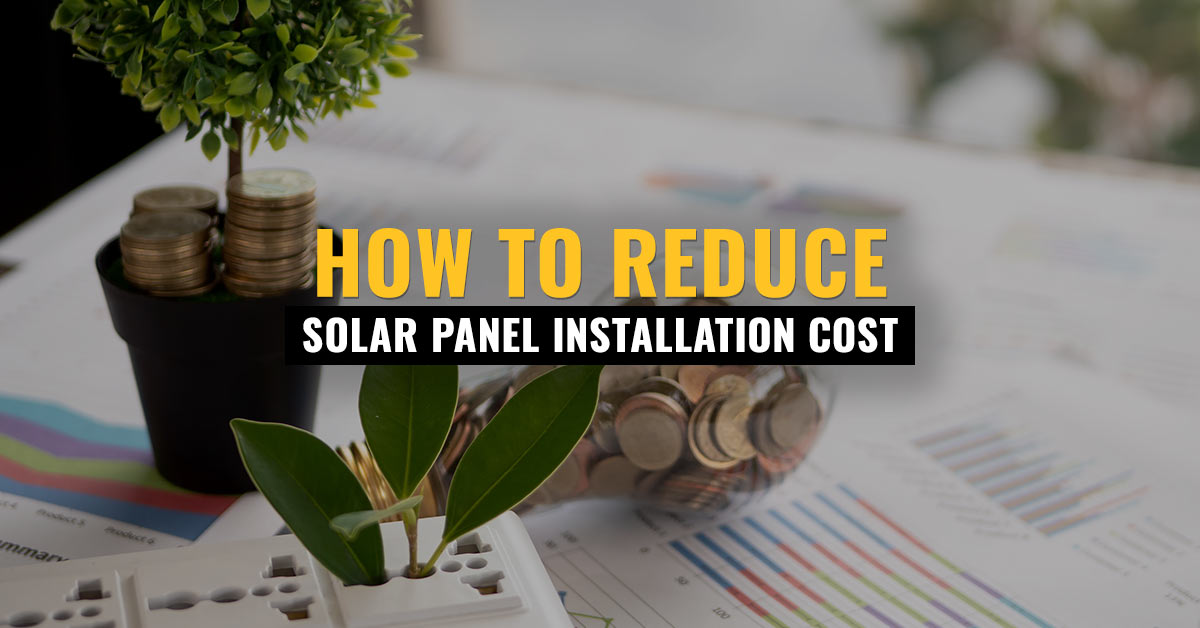Installing solar panels is an incredible investment in your home and future. Despite this, the upfront costs and cost of installing solar are what deter many people from doing so. But why solar? Well, there are a variety of long-term reasons why you would want to install solar panels.

Not only are solar panels great for the environment, but they can dramatically reduce your utility bill and electricity bills. The average cost saved with solar energy systems is an estimated $1,100 every year, and more for those who consume a lot of energy. Additionally, when you have your own solar system, you avoid power outages. No longer will you depend on the department of energy, because you will be using the energy your panels produce on their own.
If you are interested in becoming a part of the ever-growing solar industry but the solar panel installation costs have scared you away, there are a few ways that you can save on the cost of a solar installation.
The average cost of installing solar panels is anywhere from $15,000 to $25,000 depending on the size of your home and where you live. This is because, with installation, an average residential 5 kW system will cost between $3 and $5 per watt. This is before any tax credits and incentives, which means that this rate might be even lower. Read on to learn about how you can save big on your solar panel installation costs.
Most solar companies offer solar loans. This form of financing is very helpful if the initial cost of installation is what is scaring you away. If you are able to finance your system with deals like zero money down and an APR of 3%, you will be able to have your panels pay for themselves in a matter of a few years.
Also known as the ITC, The Federal Solar Investment Tax Credit is a program for those who are living in the United States. This federal tax credit allowed you to deduct 26% of the cost of your solar system from your taxes in 2020. In 2021, this dropped to 22%, which is still a huge deduction. It is good to note that in 2022 this incentive will drop to 10%, so it is important to invest now!
Different states have their own solar tax credits as well. These tax credits allow you to deduct from your state income tax. For example, in Arizona you can obtain a tax credit of 25% from your solar panel system costs up to $1000. This will be taken directly off your personal income tax. Additionally, you will also be exempted from paying tax on any solar installation or equipment in Arizona.
When choosing your solar installers you want to go with a company that is honest and does a great job. At Harmon Solar, we offer a full 10-year workmanship and roof warranty. This is essential when it comes to your solar installation. It will also help you save money in the long run by avoiding costly maintenance due to improper installation.
Although choosing solar is a big commitment, it can be life-changing. The best way to determine if solar is a good choice for you is to review your electricity bill and cost per watt. If you are spending more than $200 per month then you are a great candidate for solar. Next, you can evaluate your home’s sunlight exposure.
When there is more sun, it means more opportunity to produce energy. In states like Arizona and California, there is more sunlight per day. This equals the ability to maximize your solar potential. You can also look into the type of roof you have, amount of shade, and direction towards the sun.
If you dread getting your energy bill each month, then do not delay. With incentives, tax breaks, and lower electricity costs there is nothing to lose. Not only if for the good of the environment, but also for your wallet – the advantages of solar are practically endless!
Contact us at Harmon Solar to learn more about if your home is a good candidate for solar, and how you can utilize the different solar incentives on the market today.